-
Sections
-
Keywords
The 10 most troubled construction sites: when architecture becomes endless waiting
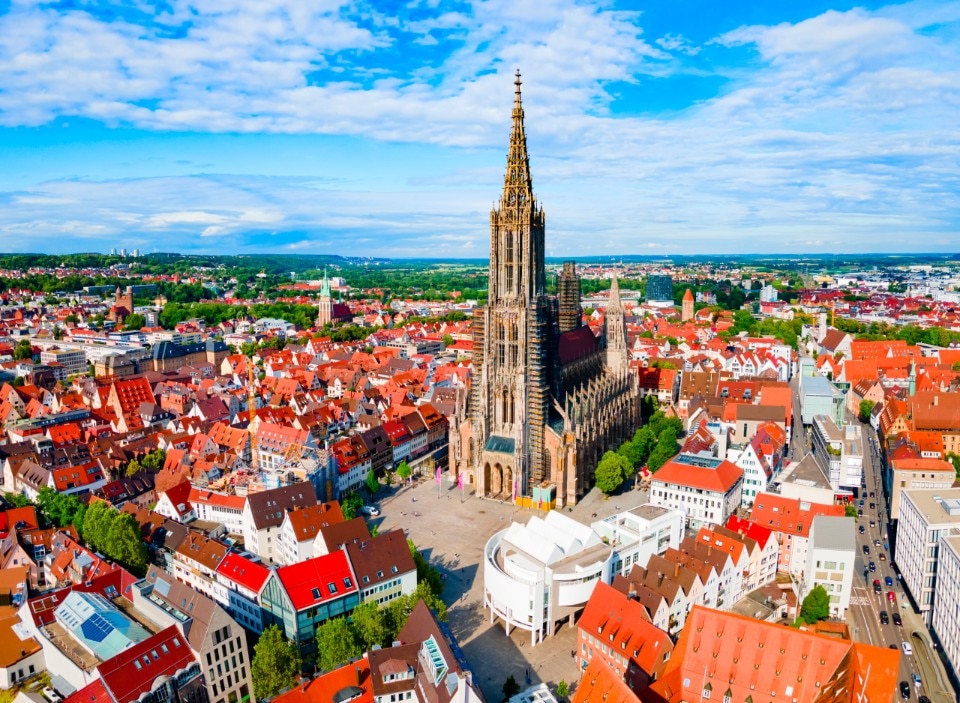
Ulm Cathedral, Germany, 1377 - 1890
The construction of the majestic cathedral, one of the finest examples of German Gothic architecture, began in 1377 and was halted in 1543 at the time of the Reformation due to political tensions and financial problems. After a standstill of three centuries, the building site was reopened in 1844 to complete the three towers according to the original plans. The building survived the troubled construction process and the bombings during World War II.
Photo saiko3p from Adobe Stock
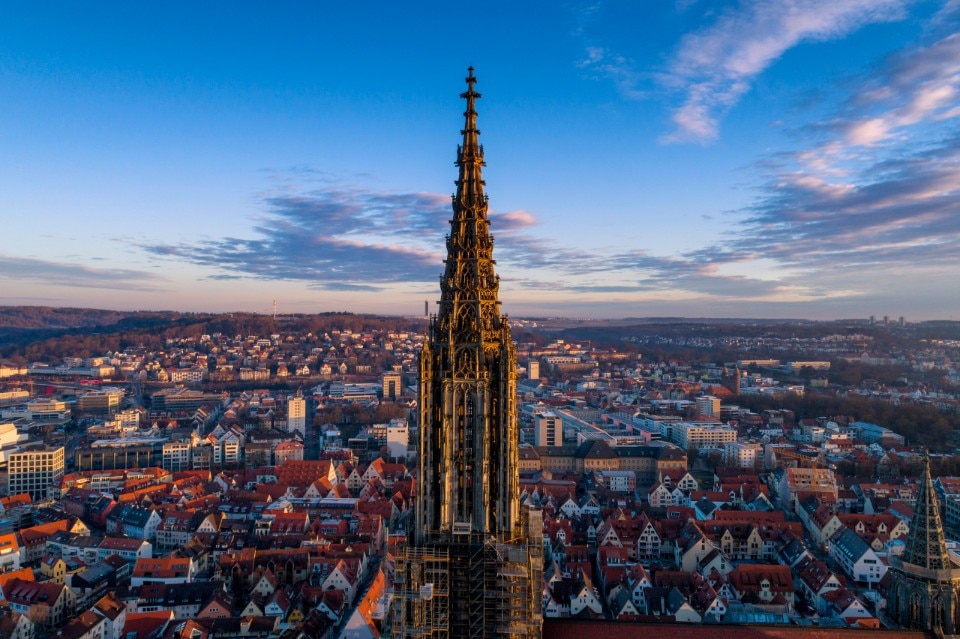
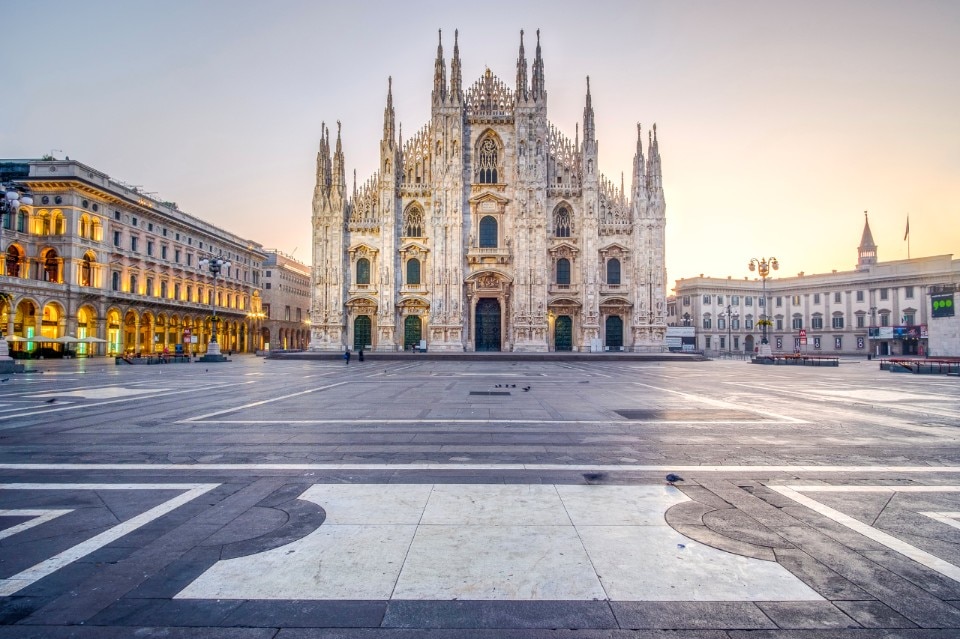
Milan Cathedral, 1386 -1 965
The construction of the Milan Cathedral, the Duomo, Italy's most famous Gothic religious building, has continued for over five hundred years since 1386 with the completion of the façade at the end of the 19th century – and the portals in 1965 – but the works can never be considered finished: even today, the Fabbrica del Duomo, the historical institution charged of preserving and enhancing the Cathedral since its foundation, is responsible for restoring and preserving stone structures, adapting technological systems and setting up spaces.
Photo Gentian Polovina from Adobe Stock
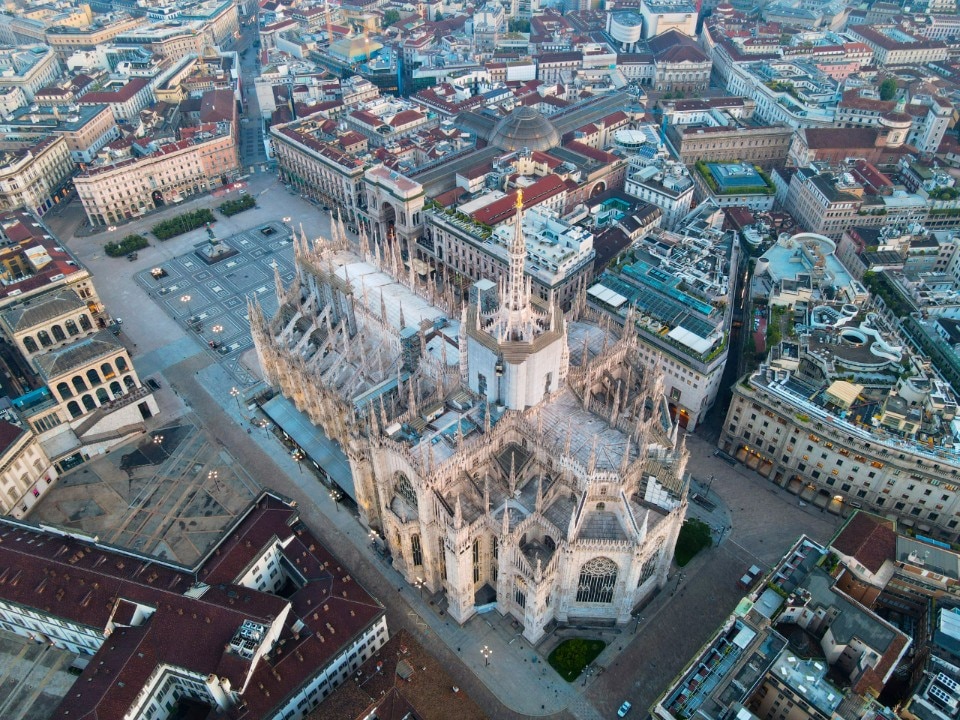
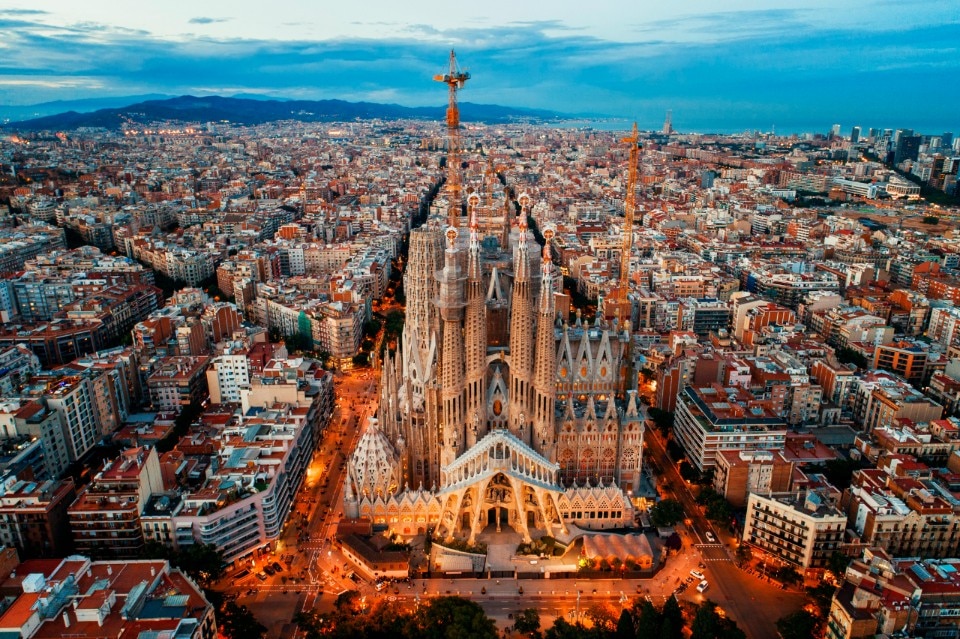
Antoni Gaudí, Sagrada Familia, Barcelona, Spain 1882 - 2026?
The Sagrada Familia is undoubtedly one of the longest and most complex modern building sites. The construction of the Gothic and Art Nouveau church, a symbol of Barcelona, began in 1882 and was less than a quarter of the way through the project by the time of its author's death in 1926. Works have continued to this day amidst delays, financial problems and constant modifications. The structure is expected to be finished around 2026 when, in addition to the towers built in 2020 and 2021, the tallest tower (172.5 metres) is also completed.
Photo rabbit75_fot from Adobe Stock
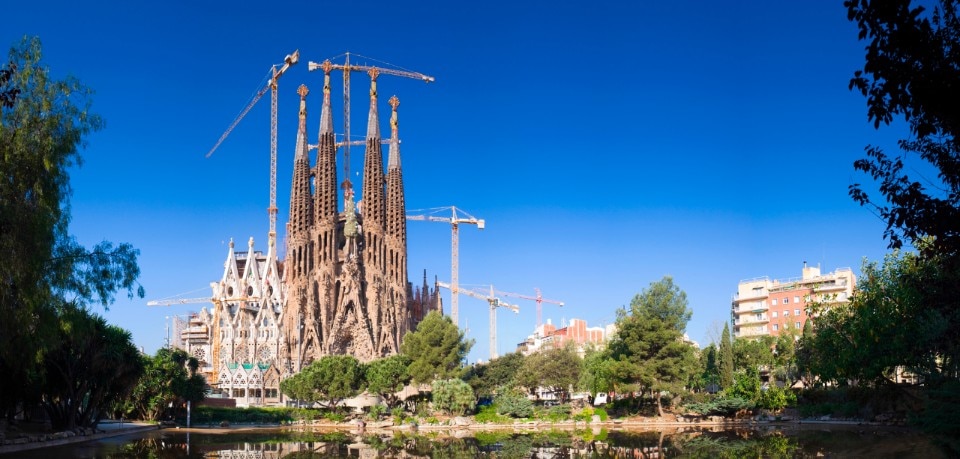
Antoni Gaudí, Sagrada Familia, Barcelona, Spain 1882 - 2026?
Photo travelwitness from Adobe Stock
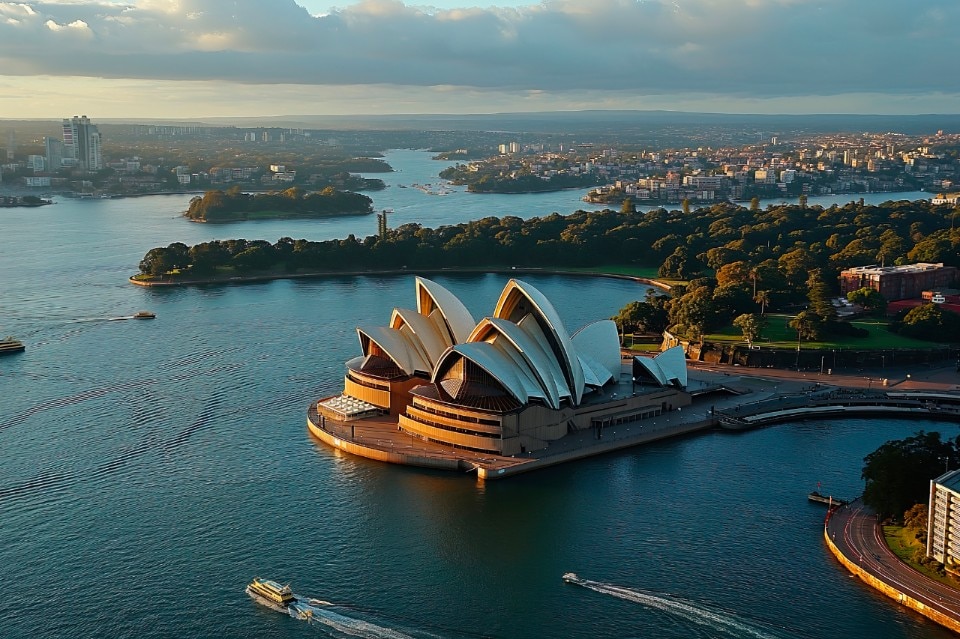
Jørn Utzon, Sydney Opera House, Sydney, Australia 1959 - 1973
Considered one of the most famous architectures of the 20th century and an undisputed symbol of Sydney, the opera house is located in a privileged position on the bay. The complex consists of three bodies (the Concert Hall for 2,600 seats, the Opera House and the restaurant) arranged on a granite platform. Characteristic elements are the shell-like roofs inspired by the segments of an orange, made of precast concrete ribs and covered in white tiles. The protracted construction time from four to fourteen years, the exponential increase in costs, the complexity of the construction process and the architect' himself abandoning the project becuse of conflicts with the client make it one of the most epic and complicated modern construction sites.
Photo Roman from Adobe Stock
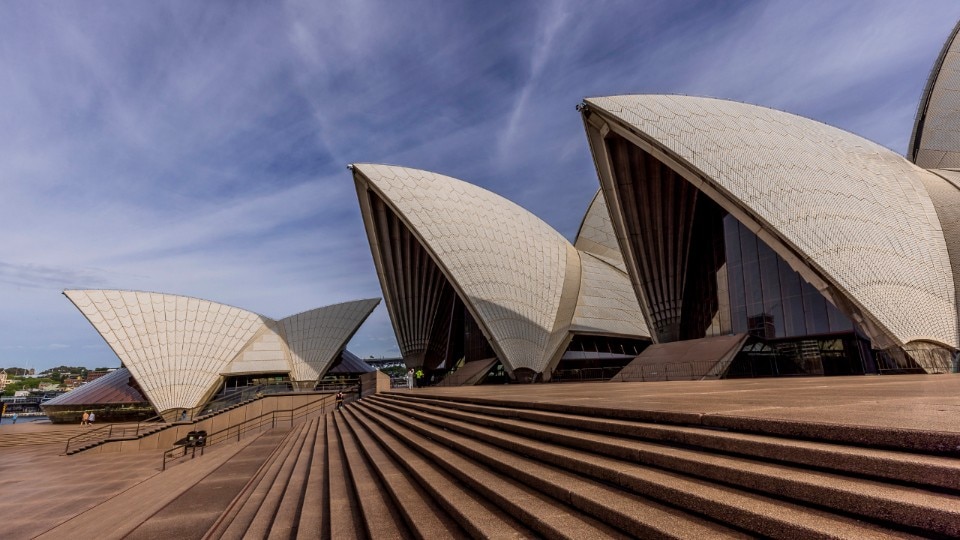
Jørn Utzon, Sydney Opera House, Sydney, Australia 1959 - 1973
Photo serge from Adobe Stock
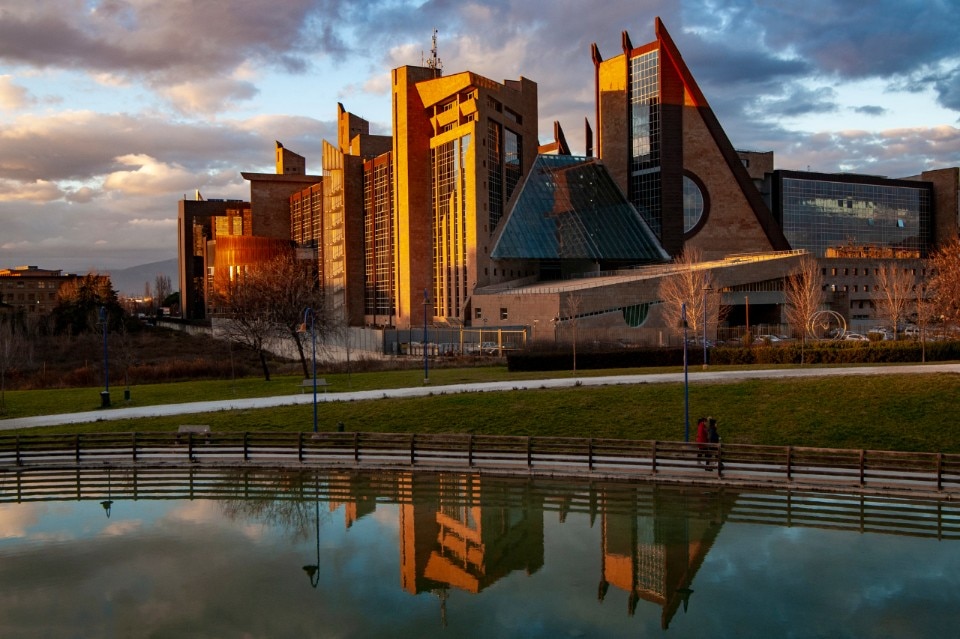
Leonardo Ricci, Courthouse, Florence, Italy 1999 - 2012
The imposing complex with its sharp and severe character was conceived to bring together the city's judicial offices to a single institutional seat. Although the project dates back to 1988, construction work did not start until 1999 and lasted, amidst stops, delays and logistical complications related to the relocation of the offices, until 2012.
Photo Enriscar from Wikipedia
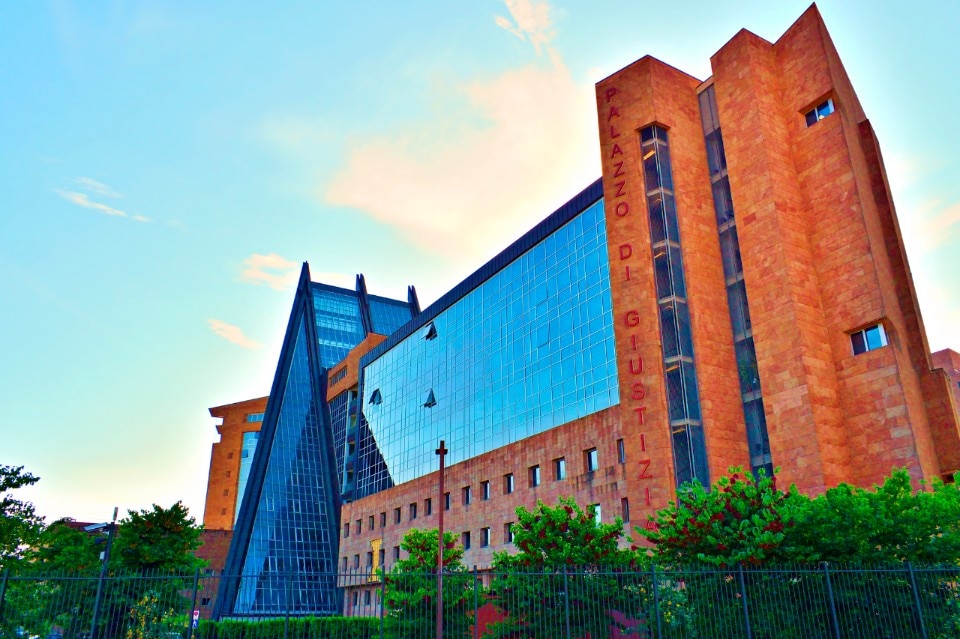
Leonardo Ricci, Courthouse, Florence, Italy 1999 - 2012
Photo Simona Bottone from Adobe Stock
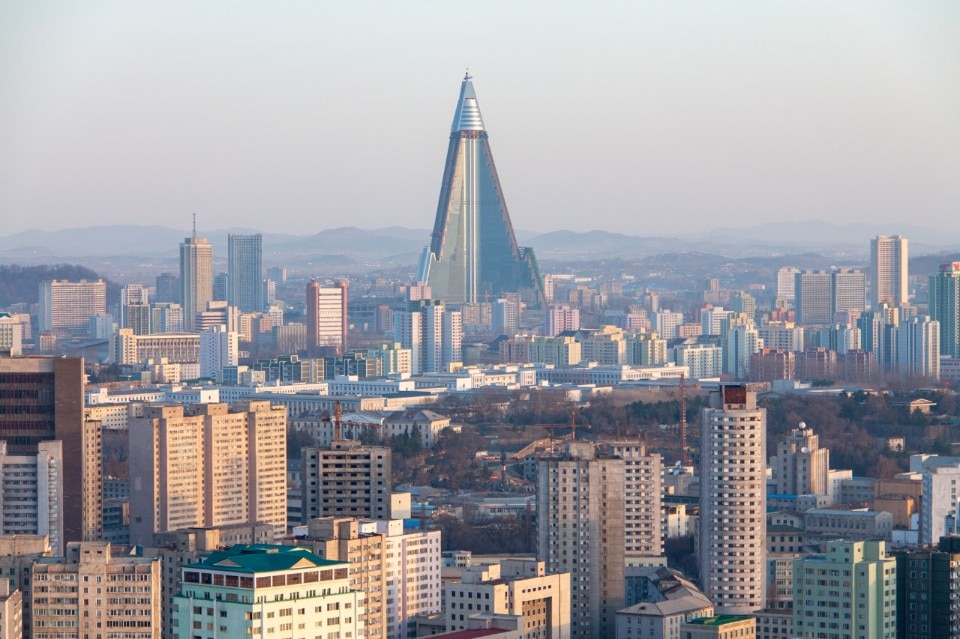
Baikdoosan Architects & Engineers, Ryugyong Hotel, North Korea, 1987 - ongoing
The construction of the imposing 330 m concrete pyramid building, which stands out in the Pyongyang skyline as the tallest structure in North Korea, began in 1987 and was suspended in 1992 due to geopolitical tensions. The building remained unused until 2008, when a financial contribution from foreign investors enabled the completion of the external envelope. In 2012, the opening of a hotel was announced, but the programme is currently suspended.
Photo Yz-Wu from Adobe Stock
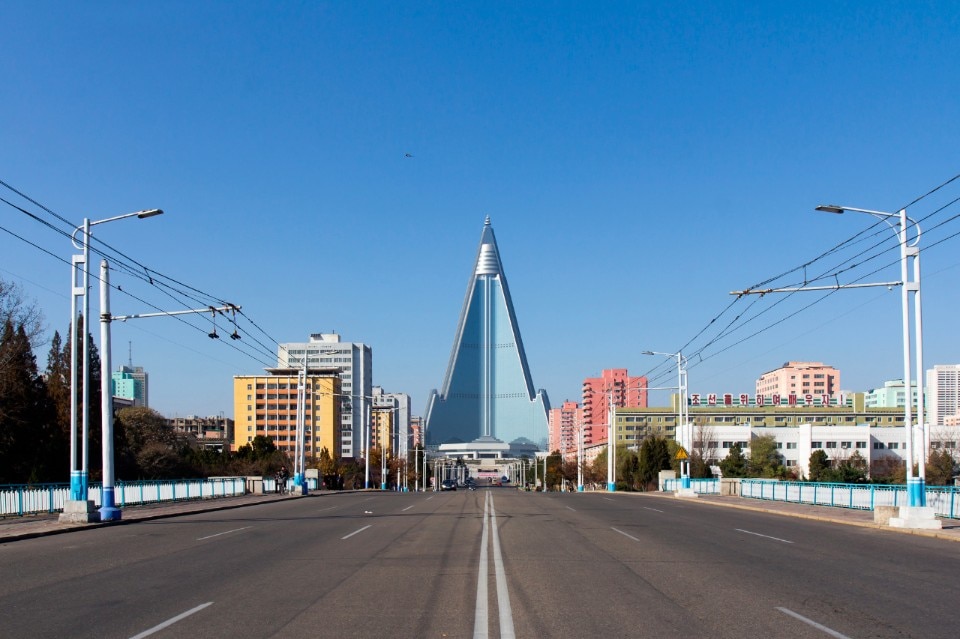
Baikdoosan Architects & Engineers, Ryugyong Hotel, North Korea, 1987 - ongoing
Photo BGStock72 from Adobe Stock
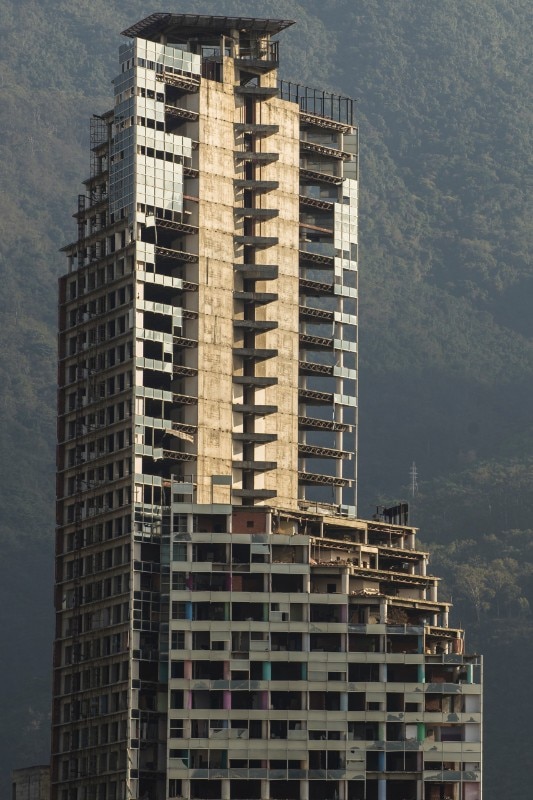
Enrique Gómez and Associates, Torre de David, Caracas, Venezuala, 1990-
The construction of this forty-five-storey skyscraper, designed as the headquarters of the Confinanzas Group, began in 1990 but was halted in 1994 after a banking crisis in the country and the death of the main investor. The skyscraper remained unfinished over time and was occupied by a community of more than 750 families who came to settle here among squats, improvised shops and neighbourhood services. Featured as the setting for an episode of Homeland in 2013, the tower was also the subject of a documentary and research project by Urban-Think Tank collective (Alfredo Brillembourg & Hubert Klumpner), Justin McGuirk and photographer Iwan Baan, which won a Golden Lion at the 2012 Venice Architecture Biennale.
Photo Eneas MX from Wikipedia
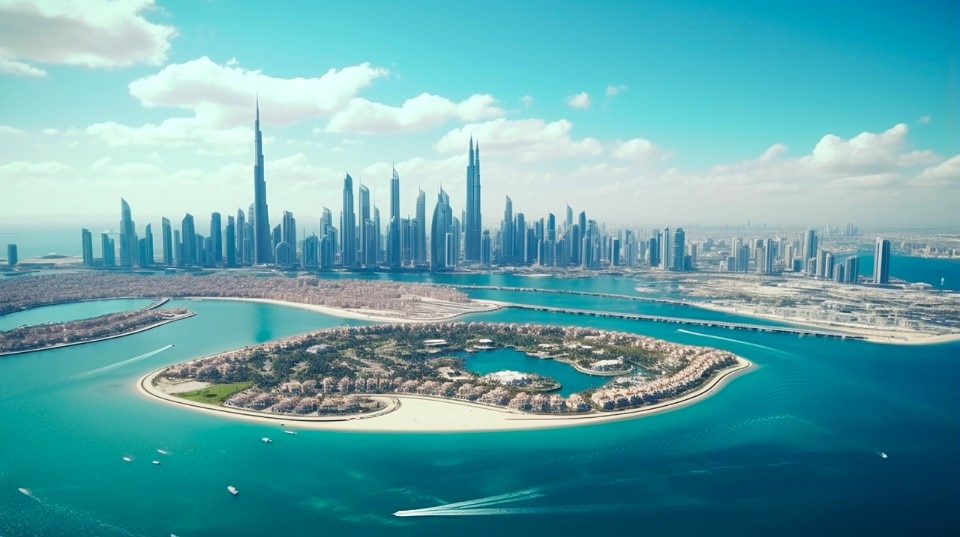
World Islands, Dubai, UAE, 2003 - ongoing
World Islands compose an archipelago of small artificial islands built in the shape of a globe, located in the Arabian Gulf off the coast of Dubai. The archipelago consists of seven island groups representing the continents of Europe, Africa, Asia, North America, South America, Antarctica and Oceania and each island is named after a country or region. Construction of the 300 islands began in 2003 and was halted due to the financial crisis of 2007-2008. Although 60% of the islands were sold to private entrepreneurs in 2008, development on most of the islands is still ongoing.
Photo Aura from Adobe Stock
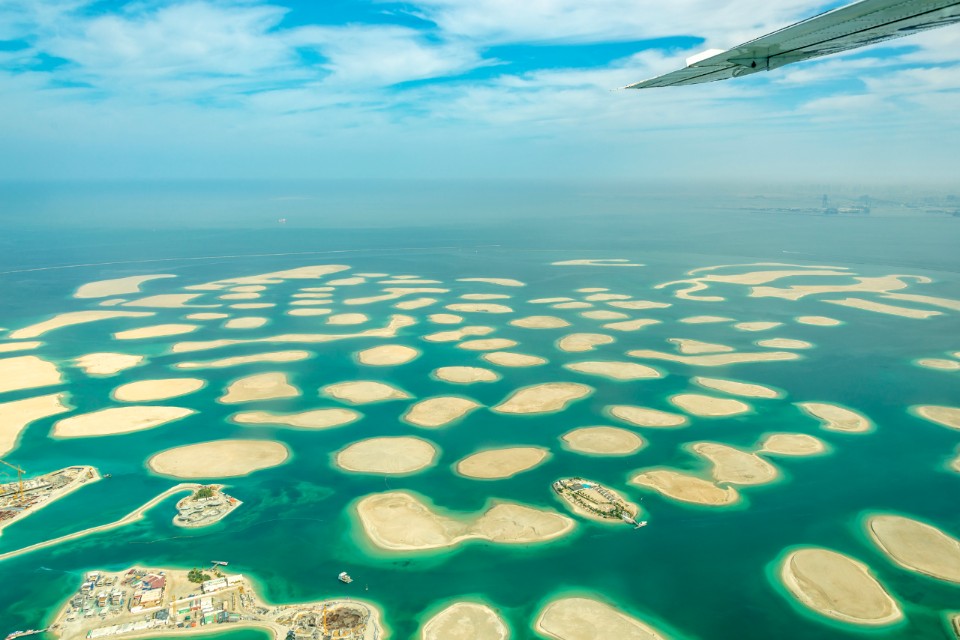
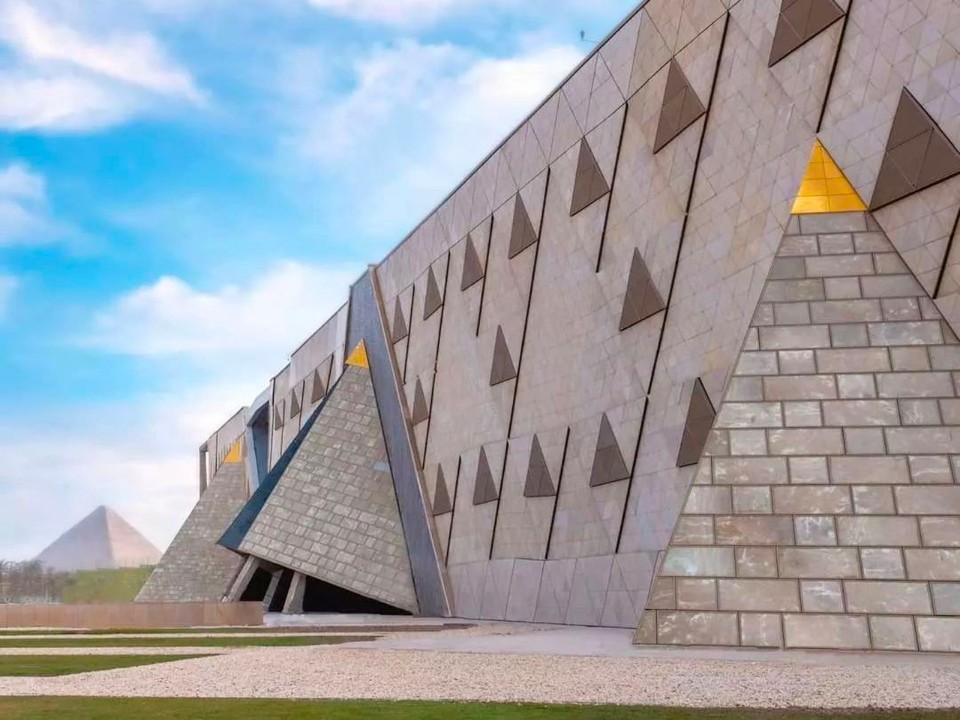
Heneghan Peng Architects, Grand Egyptian Museum, Giza, Egypt 2011 - 2024?
GEM, the world's largest Egyptian museum, located near the Giza Necropolis, is a building in the shape of a bevelled triangle with north and south faces aligned with the Pyramids of Cheops and Mycerinus, facing a square dotted with date palms. False starts and geopolitical uncertainties, financial crises and the pandemic have prolonged for more than twenty years the works, which are expected to be completed in 2024.
Courtesy of GEM
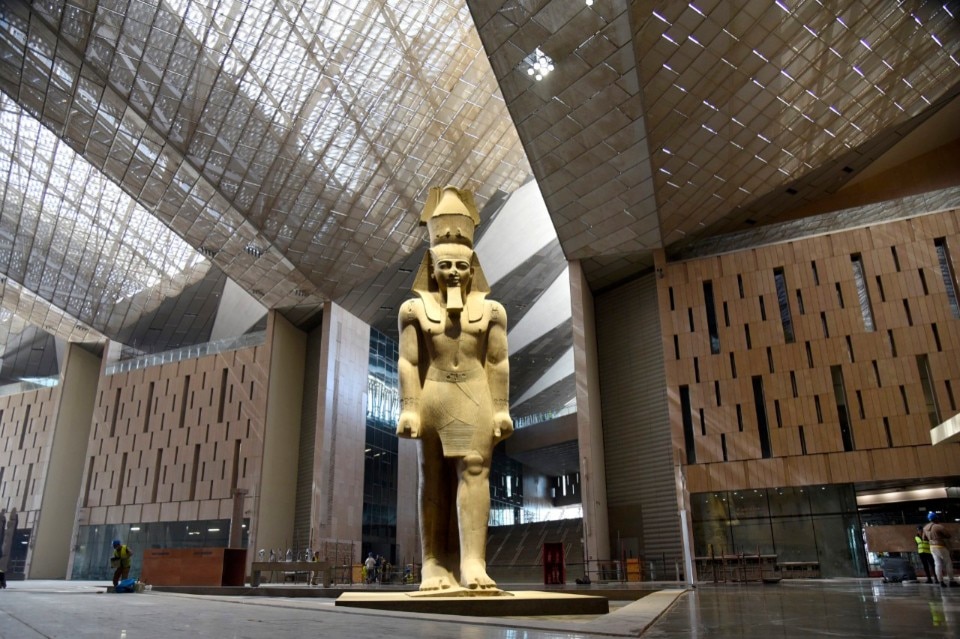
Heneghan Peng Architects, Grand Egyptian Museum, Giza, Egypt 2011 - 2024?
Courtesy Egyptian Ministry of Tourism and Antiquities
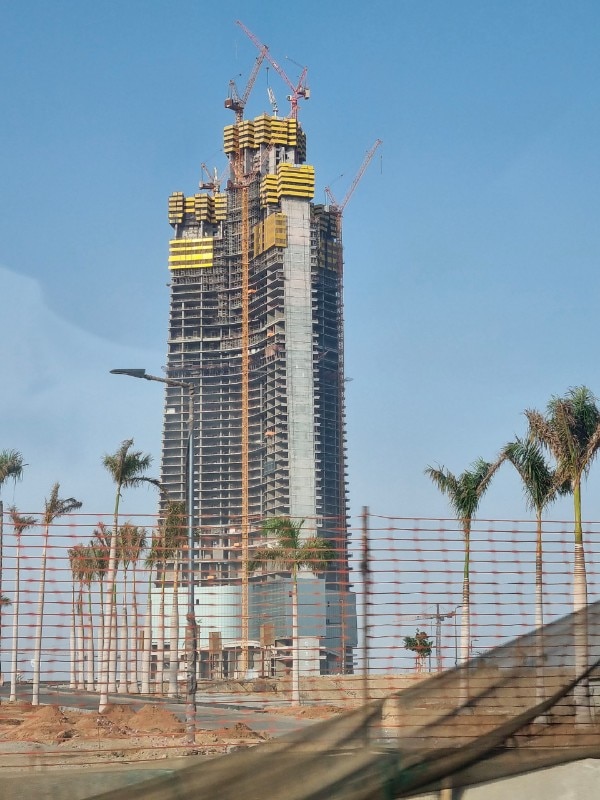
Adrian Smith + Gill Gordon Architecture, Jeddah Tower, Jeddah, Saudi Arabia, 2013 - ongoing
After more than a decade since the construction started, among setbacks for corruption and resumptions that lasted five years, works to build the Jeddah Tower in Saudi Arabia could re-start thanks to a new contractor. The building, which is currently only one-third complete, with a height of 1,000 metres is expected to become the tallest in the world, surpassing the 828-metre high Burj Khalifa in Dubai. The building will feature a glass-clad structure with a triangular layout tapering upwards and will house a hotel, residences, offices and the world's highest observation platform standing on a built structure.
Photo Omarnizar05 from Wikipedia (May 2021)

Adrian Smith + Gill Gordon Architecture, Jeddah Tower, Jeddah, Saudi Arabia, 2013-?
Render from Wikipedia


